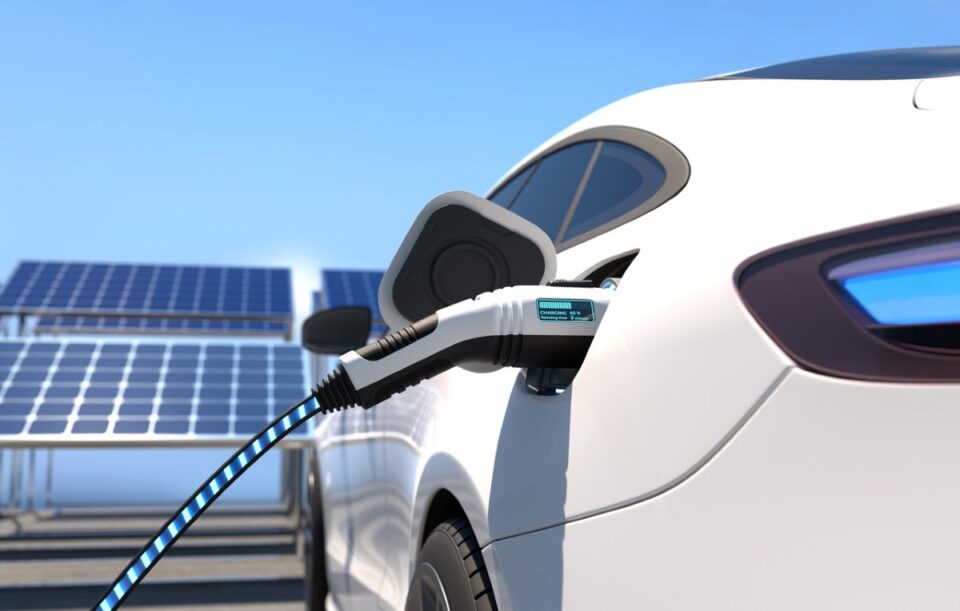Electric vehicle (EV) producers in China have expressed interest in spending over $1.44 billion there to produce EVs. This occurs at a time when Thailand wants EVs to account for 30% of all vehicles produced in the nation by 2030.
Main Points
Thanks to the government’s investment promotion, Chinese EV manufacturers are eager to invest over $1.44 billion in Thailand’s production of electric vehicles.
The introduction of Chinese EV producers would increase demand for electric cars in Thailand, the second-largest auto market in ASEAN.
Three times as many electric vehicles (EVs) were registered in Thailand during the first half of 2023 as there were during the entire year of 2022.
GSC Aion New Energy Automobile and Svolt Energy Technology, two Chinese businesses, have already made significant investments in Thailand’s EV and battery industries. Offering advantages and benefits to investors from all over the world, the Thai government has been aggressively encouraging investments in the EV sector.
Thailand, the second-largest market for automobiles in ASEAN, will benefit from the increased popularity of EVs brought on by the entry of Chinese automakers. Three times as many electric vehicles (EVs) as in all of 2022 were registered in Thailand in the first half of 2023, at 31,000.
BYD Auto, Great Wall Motor, SAIC Motor, and NETA Auto are just a few of the Chinese automakers that are putting money into EV production in Thailand. Chinese businesses have submitted 93 applications for investment promotion to the BOI in the first five months of 2023, totaling more than 31 billion baht in investments.
Thailand as a center for manufacturing and distribution
As they believe that courting foreign investors will always be the strategy of any Thai administration, more and more significant Chinese EV businesses are focusing their next EV push on Thailand.
The East Economic Corridor Policy Committee in Thailand received a letter of investment commitment from GAC AION in April. As its first international location, the Chinese EV manufacturer is interested in the second economy in Southeast Asia. According to Thailand Business News, Chang’an Auto also announced that it will invest 9.8 billion baht in a factory in Thailand that would make 100,000 electric vehicles yearly.
When it comes to expanding their production and distribution networks in Southeast Asia, Chinese electric vehicle (EV) manufacturers are turning to Thailand as a crucial location. The nation has alluring incentives, a sizable domestic market, and a prime location for reaching the economy of its neighbors. In this blog article, we’ll look at the causes of Chinese EV manufacturers’ increasing presence in Thailand and the ramifications for the local automotive industry.
Thailand: Why?
With a well-established supply chain, a trained workforce, and encouraging regulations, Thailand has long been a significant center for the production and export of cars in Southeast Asia. With a population of around 70 million and a growing middle class, the nation is also one of the largest users of automobiles in the area.
Thailand has been supporting the growth of its EV industry in order to take advantage of these benefits, enticing overseas investors with tax cuts, subsidies, and other incentives.
Chinese EV manufacturers, who are confronted with escalating competitiveness and regulatory restrictions in their home market, have taken note of these factors. They can take advantage of lower costs, simpler access to raw materials and components, and favorable trade arrangements with other ASEAN nations by establishing production facilities in Thailand.
Who are the participants?
The following significant Chinese EV producers have already established or made plans to invest in Thailand:
Ora brand electric vehicles are made at a plant run by Great Wall Motor in the province of Rayong. The business also has plans to establish an R&D facility and a battery manufacturing in Thailand.
BYD Co., which also has an EV and battery manufacturing facility in Rayong. The corporation wants to boost manufacturing and sell its goods in additional Southeast Asian markets.
Chongqing Changan Automobile plans to invest 10 billion baht ($290 million) in the establishment of an electric vehicle production facility in the province of Chonburi. The company anticipates beginning manufacturing in 2024 and marketing its cars under the Kaicene name.
GAC Aion is to invest 6.2 billion baht ($180 million) in the construction of an EV factory in the province of Chachoengsao. The company plans to start manufacturing in 2023 and introduce the Aion V in Thailand.
Hozon New Energy Automobile, whose manufacture will begin in Thailand in 2024 and which will be sold throughout Southeast Asia. The business will collaborate with a local business, Yontrakit Group, to produce its Neta brand of electric vehicles.
What are the difficulties?
Despite the possibilities, Chinese EV manufacturers still face significant obstacles when trying to enter the Thai market.
Thai buyers still have a limited knowledge of Chinese automobile brands and may be concerned about their quality, safety, and after-sales support. To gain the trust and allegiance of local consumers, Chinese EV manufacturers will need to make investments in marketing, branding, and customer education.
Infrastructure: With only roughly 2,000 charging stations spread out over the nation, Thailand’s EV charging infrastructure is still in its infancy. This might restrict the use and uptake of EVs, particularly outside of significant urban centers. Chinese EV manufacturers will have to work with the public and commercial sectors to develop and enhance the charging network.
Thai buyers have a wide range of carmaker options to choose from, including Japanese, Korean, American, and European automakers. Some of these competitors, including Toyota, Nissan, Hyundai, Ford, and BMW, have also declared intentions to import or make EVs in Thailand. Chinese EV manufacturers will need to set themselves apart from their rivals by providing cutting-edge features, aggressive pricing, and first-rate support.
What are the consequences?
The growing investment by Chinese EV manufacturers in Thailand is probably going to have a big impact on the local auto sector, like:
Thailand’s position as a regional leader in EV adoption and production is being strengthened by the entry of Chinese EV manufacturers. Thailand is already ahead of its neighbors in these areas. The country will gain from the expansion of its EV industry in the form of increased jobs, exports, knowledge transfer, and environmental advantages.
In Southeast Asia’s vehicle market, Japan has long held a monopoly position thanks to its solid reputation for dependability and quality. In contrast to China, which has emerged as the world’s top producer and consumer of EVs, Japan has been slower to adopt EVs. Chinese EV manufacturers may represent a severe challenge to Japan’s market share and influence as they increase their presence in Thailand and other ASEAN nations.
Chinese EV manufacturers’ entry into Thailand may also open up new possibilities for cooperation and coordination among other stakeholders, including local suppliers, distributors, service providers, and regulators. Together, they can meet the obstacles and realize the full potential of the EV market in Thailand and elsewhere.
READ MORE: http://pattayaone.news




